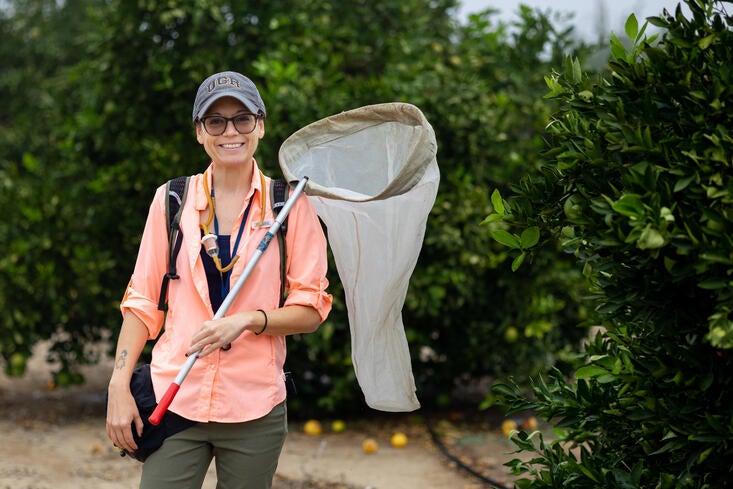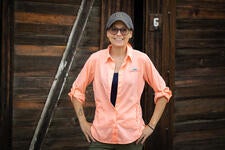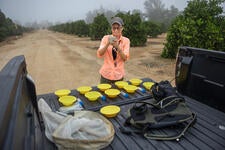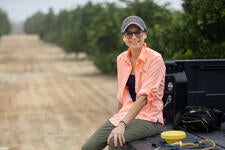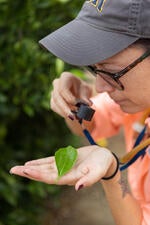Krissy Dominguez
2022 Scholarship Recipient
Krissy Dominguez is a sixth year Ph.D. candidate in the Department of Entomology at UC Riverside, working on the systematics of parasitoids in the Heraty Lab. Krissy chose this exciting discipline because nothing intrigues her more than unraveling phylogenetic histories to improve our understanding of the diversity, classification, and evolutionary patterns among the world's largest source of biodiversity—insects.
Krissy's research aims to reconstruct the evolutionary relationships of taxa within the family Mymaridae (fairy fly wasps). Mymarids are among the most stunningly minute (smallest measuring at 0.139 mm), abundant, morphologically diverse, and economically important families of egg-parasitoid wasps within the superfamily Chalcidoidea. The family is comprised of 116 described genera and ~1,400 described species that are internal, solitary, or gregarious egg-parasitoids mainly of phloem feeding pestiferous hosts within Auchenorrhyncha (Hemiptera ~40%). The remainder attack Coleoptera, Diptera, Hymenoptera, and Psocoptera. Species of Anagrus, Anaphes, Cleruchoides, Cosmocomoidea, Gonatocerus, and Stethynium have successfully been used for the biological control of insect pests in both agricultural, urban, and natural ecosystems.
There is a lot of uncertainty regarding the classification of relationships among genera within subfamilies and tribes of the Mymaridae. The reason for this is that most work has been on basic taxonomic descriptions and there has only been one morphological phylogenetic analysis treating only 22 genera which was done in 1984!!
Consequently, systematic studies like Krissy is doing are essential if stable classification schemes are to accurately reflect evolutionary relationships which will allow for predictions and testable hypotheses. The research approach Krissy is using to improve understanding of the Mymaridae is using a combination of morphological studies and next-generation molecular sequencing (Anchored Hybrid Enrichment).
When finished, Krissy's research will provide the largest phylogenetic analysis of the Mymaridae which will support work on these parasitoids which are very important biological control agents.
Funds from the Harry Scott Smith Award will cover sequencing costs and provide salary support for Krissy which will enable her to focus on finalizing results and writing up her dissertation in Fall 2022.
Krissy's scholarship is made possible in part by these 2021 and 2022 donations
A special thanks to Anonymous, Robert and Carol Hardison, Mrs. Susan and Mr. Dondald Dearorff, Mr. Gary and Mrs. Kathy Veeh, Retha Keenan (in memory of Ray Keenan), Mrs. Pamela and Mr. John Pavela, Dr. Betsy Boyd and Dr. Justin Nay, Tognazzini Avocado Partnership, Mr. Devon and Mrs. Claire Carroll and Mr. and Mrs. Cooley.
